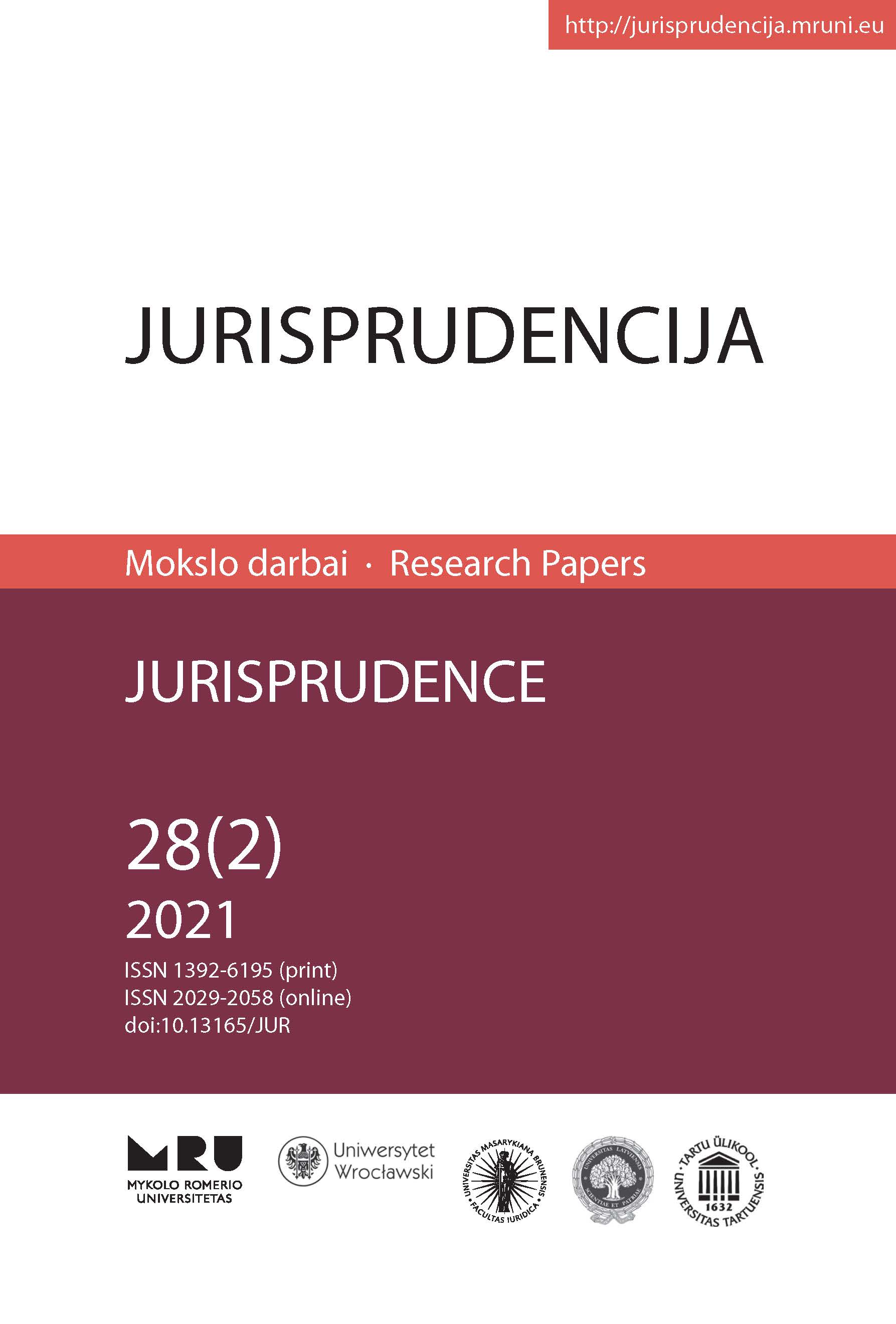KONSTITUCINIO TEISMO PATIRTIS IR IŠŠŪKIAI SPRENDŽIANT VALSTYBĖS VALDŽIOS INSTITUCIJŲ GINČUS
EXPERIENCE GAINED BY THE CONSTITUTIONAL COURT AND ITS CHALLENGES IN RESOLVING CONSTITUTIONAL DISPUTES BETWEEN STATE AUTHORITIES
Author(s): Danutė JočienėSubject(s): Constitutional Law
Published by: Mykolas Romeris University
Keywords: The Constitutional Court of the Republic of Lithuania; ensuring the supremacy of the Constitution as the supreme law and the Rule of law; official constitutional doctrine; the constitutional principle
Summary/Abstract: This article presents the experience gained by the Constitutional Court of the Republic of Lithuania in resolving disputes between state authorities and, at the same time, the challenges in ensuring both the supremacy of the Constitution as the supreme law and the rule of law. First, the content of the constitutional principle of the separation of powers (which is enshrined, among others, in Article 5 of the Constitution) as the legal basis for disputes between public authorities is revealed. As the Constitutional Court has repeatedly pointed out, this principle is the main principle of the democratic organisation and functioning of a state under the rule of law. After that, based on the interpretation of the constitutional principle of the separation of powers in the official constitutional doctrine, those challenges are illustrated by analysing constitutional disputes in the specific most prominent constitutional justice cases in recent years (2018–2021) in which the Seimas of the Republic of Lithuania and the Government of the Republic of Lithuania were most involved. It is apparent from the examined constitutional justice cases that the Constitutional Court has a strong responsibility, in the process of examining the constitutionality of legal acts, to act as a prudent arbitrator in disputes between public authorities before it, with a view, on the one hand, to ensuring the constitutional balance and harmonious functioning of the system of public authorities as a whole and, on the other hand, to creating the preconditions for the proper exercise by those authorities of the competence enjoyed by them under the Constitution. The protection of the constitutional principle of the separation of powers and the related constitutional imperatives, and the proper operation of the mechanisms established by the Constitution to ensure the smooth functioning of the state authorities and cooperation between them are important for the Constitutional Court in the course of administering constitutional justice entrusted to it.
Journal: Jurisprudencija
- Issue Year: 28/2021
- Issue No: 2
- Page Range: 323-342
- Page Count: 20
- Language: Lithuanian

